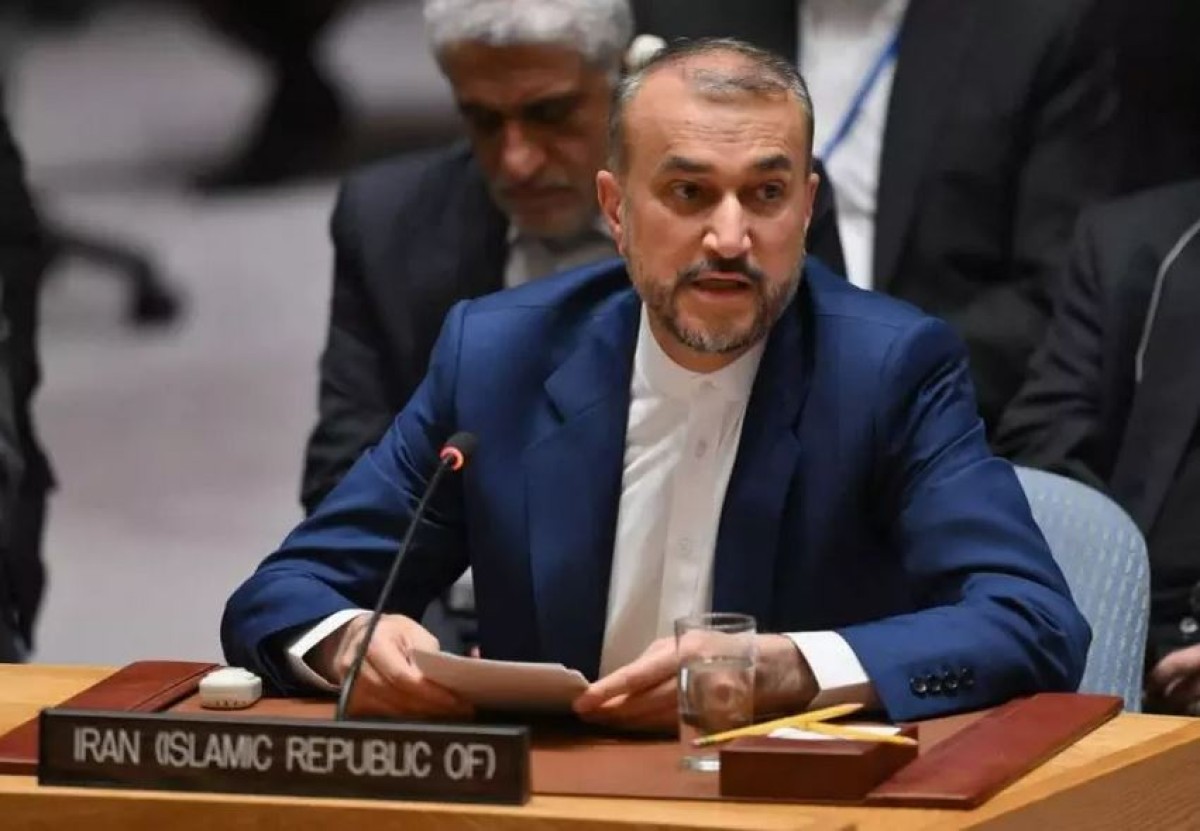 205
205
Iran’s Champion of the Palestinian Cause: Honoring Amir-Abdollahian's Unwavering Legacy
Iran’s Champion of the Palestinian Cause: Honoring Amir-Abdollahian's Unwavering Legacy
The Islamic Republic of Iran's foreign policy has long been focused on the ongoing plight of the Palestinian people. In formulating the nation's foreign policy doctrine, the late Imam Khomeini, the architect of the Islamic Revolution of 1979, deemed Zionism a menace not only to the international community at large but in particular to the Islamic states. He apprehended that the sinister agendas of the Israeli regime extended far beyond the confines of Palestine, rather aiming to forge a dominion stretching from the Nile to the Euphrates.
By: H. Zaïm-Bashi
The Islamic Republic of Iran's foreign policy has long been focused on the ongoing plight of the Palestinian people. In formulating the nation's foreign policy doctrine, the late Imam Khomeini, the architect of the Islamic Revolution of 1979, deemed Zionism a menace not only to the international community at large but in particular to the Islamic states. He apprehended that the sinister agendas of the Israeli regime extended far beyond the confines of Palestine, rather aiming to forge a dominion stretching from the Nile to the Euphrates.
As a matter of fact, Iran's foreign policy is centered on providing Palestinian and other Islamic resistance organizations with steadfast assistance. This pledge not only extends Iran's strategic reach but also lays the groundwork for asymmetric deterrence, the cornerstone of Iran's defense strategy.
Iran's steadfast support for the Palestinian cause is rooted in a combination of Islamic and humanitarian principles, as well as strategic political calculations aimed at resonating with domestic and global sentiment. Key factors underpinning this stance include ethos such as anti-Zionism, anti-colonialism, and a commitment to resistance, all of which fuel Iran's solidarity with Palestinians facing occupation under the Israeli regime.
Iran's diplomatic echelons have, across various administrations, espoused these fundamental principles, with the late Hossein Amir-Abdollahian, a seasoned stalwart of Iran's foreign policy apparatus, assuming the mantle of the Ministry of Foreign Affairs under Dr. Ebrahim Raisi's administration. Throughout his tenure in the Iranian diplomatic corps, he has consistently championed the cause of Palestine, stepping up his efforts following the Israeli aggression against 2.5 million Palestinian civilians in Gaza.
Among his notable initiatives over the past eight months are:
1. Advocating for a unified stance among Islamic and Arab nations concerning the Palestinian cause and undertaking multiple diplomatic excursions, he engaged with high-ranking officials of these states, urging them to denounce the atrocities perpetrated by the Israeli regime and to take a decisive stand against the systematic ethnic cleansing in Gaza. Following the Israeli assault on the crowded al-Ahli hospital, he called for an immediate severance of ties between certain Arab sheikhdoms and Tel Aviv, urging for a complete boycott of the Israeli regime by Islamic countries. Additionally, he proposed the establishment of a special committee tasked with documenting the war crimes committed by the Israeli troops and their Western collaborators, paving the way for the prosecution of Israeli war criminals in international tribunals.
2. Addressing the humanitarian crises of famine and disease that engulf Gaza, he lobbied for the creation of a humanitarian corridor to facilitate the delivery of essential medical supplies and sustenance to the besieged civilians. In collaboration with regional stakeholders, notably Egypt, he spearheaded efforts to mobilize emergency resources for Gaza, engaging with international bodies such as the United Nations, the Red Cross, and the World Health Organization to underscore the grave humanitarian condition in Gaza and the immediate need for unfettered access to medical aid.
3. Engaging in diplomatic initiatives within international forums and relentless endeavors to foster a ceasefire and curb Israeli atrocities in Gaza, Mr. Amir-Abdollahian, in addition to his telephonic consultations and written correspondence, made numerous trips to the United Nations headquarters during this period. He engaged in dialogues with the Secretary-General of the United Nations, António Guterres, and counterparts from diverse nations globally, focusing on the Palestinian predicament and the massacres of the Israeli regime, striving to bring about an end to aggression and secure a truce. His zealous endeavors were so fervent that European governments supportive of the Israeli regime beseeched Washington to deny him visas from New York to enter the UN.
An additional pivotal area where he played a critical role was Iran's missile and UAV response to the Israeli regime. The seamless coordination of Amir-Abdollahian’s diplomatic maneuvers and Iran's military and security actions in retaliation against the Israeli authority conveyed a potent message to regional and extra-regional backers of the Israeli regime, signifying that Iran presently dictates the geopolitical balance in the region. Should the regime and its supporters persist in their genocidal and criminal actions, they shall encounter a resolute response.
The truth remains that his tragic death signifies a profound loss for the Islamic Republic and the Axis of Resistance; nonetheless, Iran remains steadfast in its commitment to carry forth the legacy of this great diplomat. The cause of Palestine stands as an enduring concern that has been and will continue to be championed by various officials and figures since the inception of the Islamic Revolution.
 205
205
Comment
Post a comment for this article